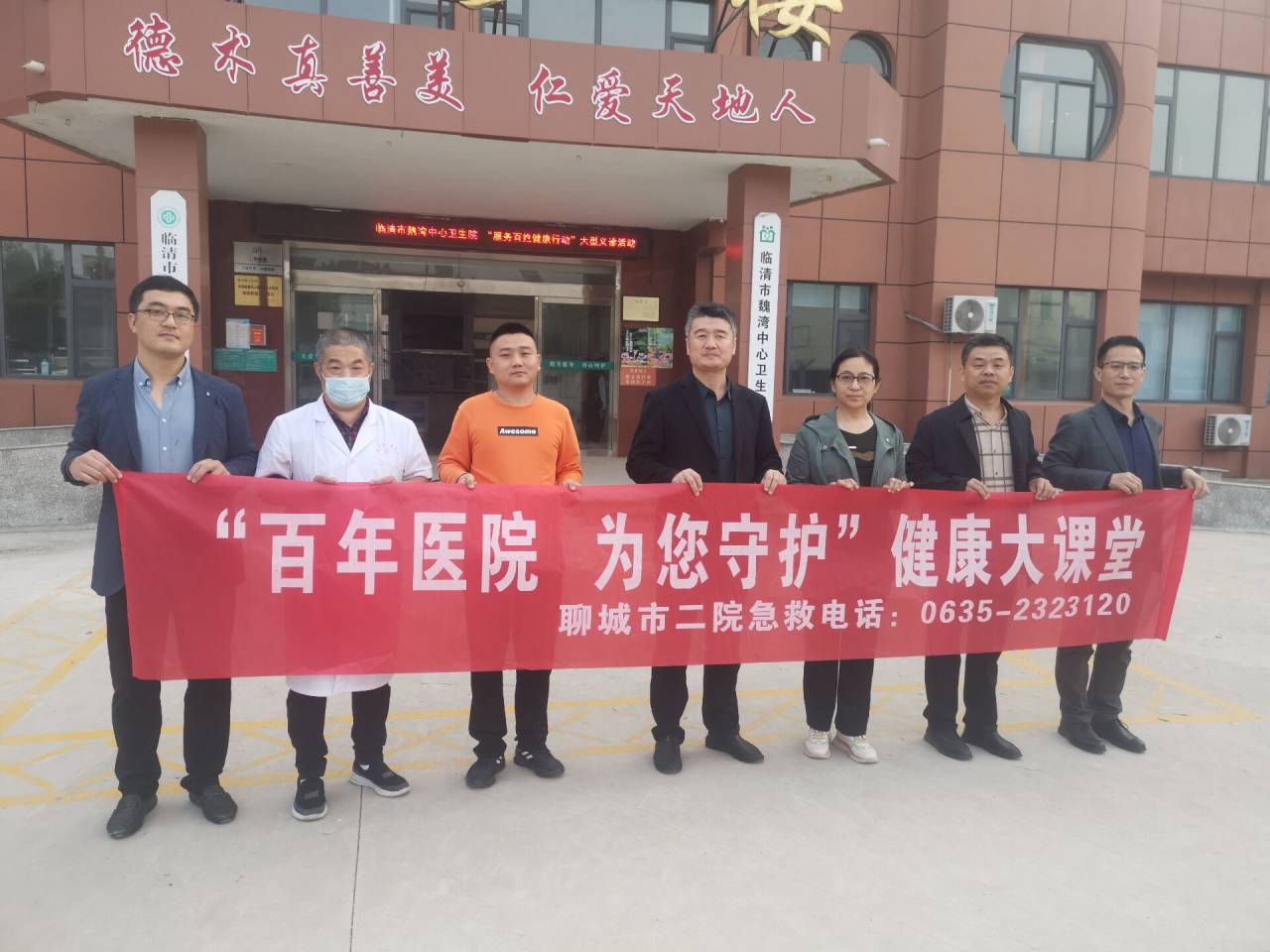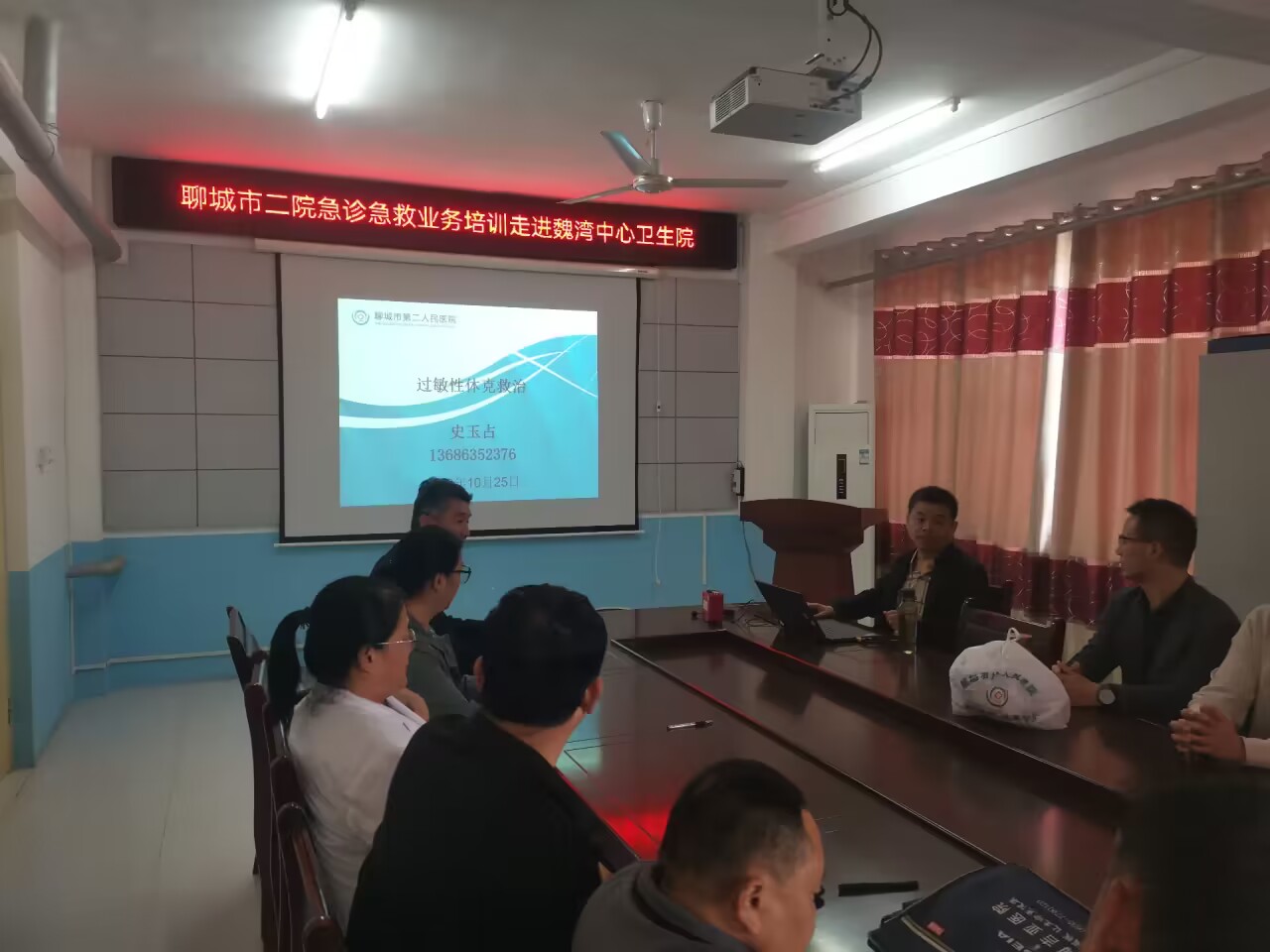- Date:2023-10-25
- Click:4670Times
In order to give full play to the advantages of the medical consortium, to do a good job of sharing high-quality medical resources, and to continuously improve the level of medical business capacity of grass-roots member units by means of academic communication; in the afternoon of October 25th, the Medical Department of the Office of Level Diagnosis and Treatment invited Huamei Emergency Medicine to carry out first aid technology training and lecturing in the member units of the medical consortium-Linqing Weiwan Central Health Center, and more than 30 people, including the backbones of clinical medical services and village health room physicians, participated in the training. More than 30 doctors from the village health center attended the training.


First of all, Dr. Shi Yuzhan, deputy chief physician of the Department of Emergency Medicine, gave a detailed and vivid explanation on the topic of “Rescue and treatment of anaphylaxis”, from the causes of anaphylaxis, clinical manifestations, first-aid measures, etc., and combined with many years of first-aid experience. It gave everyone a deeper understanding of first aid for anaphylaxis and further improved the first aid level of primary care physicians.
After that, Deputy Chief Physician Yu Germany lectured on the topic of “Application Experience of Traditional Treatment in Chronic Wounds”, sharing his many years of clinical practice experience.
After the lecture, Drs. Shi Yuzhan and Yu German of Huamei Emergency Department and Xu Ning of Joint Surgery Department went deep into the wards, checked the hospitalized patients, put forward reasonable treatment plans, and explained the nursing precautions to the families of patients with decubitus ulcers. Director Zhao Wenjie of the Medical Department's Level Diagnosis and Treatment Office discussed with President Lu Changgui of Weiwan Central Health Hospital about the collaboration of the medical association.
The training further gave full play to the role of the lead unit of the medical consortium, which not only enabled the physicians of the primary health hospitals to gain new professional knowledge, but also deepened the friendship between the member units of the medical consortium, so as to better provide high-quality medical services for the patients at the grass-roots level.
(Graphic: Zhang Xiuliang)



 鲁ICP备11009722号-4
鲁ICP备11009722号-4 